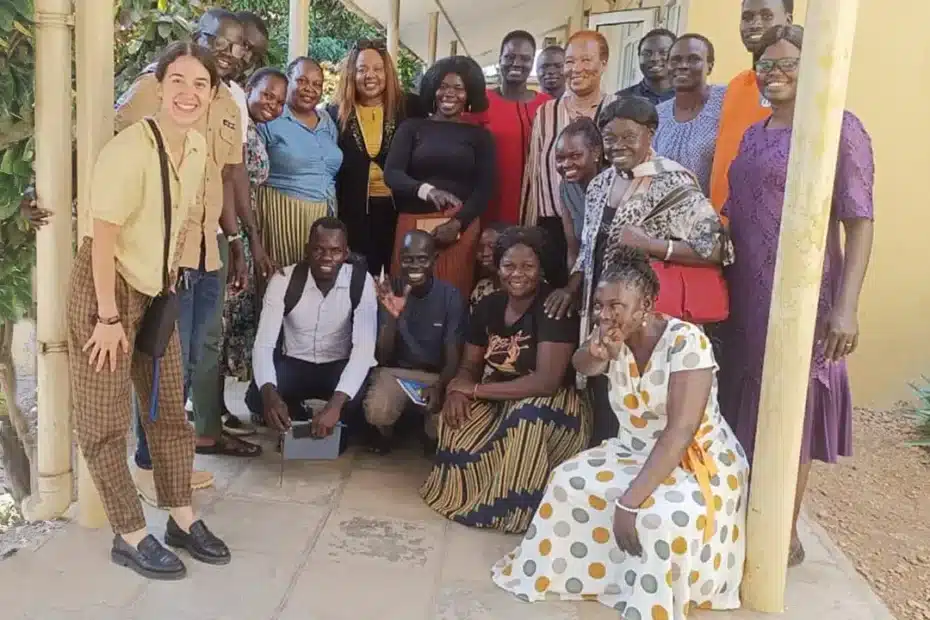“I learned that Respectful Maternity Care is a universal right. Every woman has the right to be treated with respect while carrying a pregnancy and giving birth… I spend more time with clients now because of RMC. It helps me connect with them.”
— Janet, midwife at Juba Teaching Hospital, South Sudan
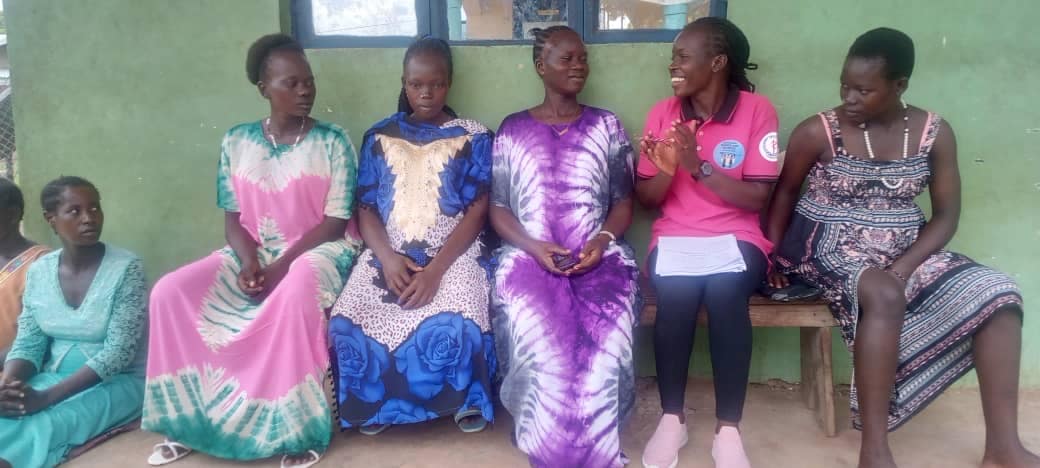
In a world where maternal health crises continue to claim lives – and where funding cuts to international development have left many health systems in the Global South under strain – a quiet revolution has been unfolding. It hasn’t been led by populist politicians or tech billionaires, but by midwives.
SMART-RMC (Respectful Maternity Care), a project led by the Canadian Association of Midwives (CAM) and funded by Global Affairs Canada, wrapped up in early 2025 after three years of work in the Democratic Republic of Congo (DRC) and South Sudan. As CAM’s first major international initiative led entirely by midwives, SMART-RMC has laid the groundwork for future CAM-led global projects.
“What was really special about this project was the people behind it,” reflects Kariane St-Denis, SMART-RMC Project Officer at CAM. “The midwives we worked with in the DRC and South Sudan showed an incredible amount of dedication and resilience. Even in extremely challenging contexts, they showed up every day with compassion and a deep desire to create safe spaces and better experiences for mothers and babies.”

At the heart of SMART-RMC is a simple but powerful idea: that respectful, high-quality care during pregnancy and childbirth is not a luxury; it’s a human right. By embracing this principle, midwives are confronting systemic barriers that deny women dignified, informed, and culturally safe care – and changing the systems from within.
The impact has been measurable. At the start of the project, just 5% of providers in the DRC and 11% in South Sudan could name three key elements of Respectful Maternity Care. By the end, 96% in the DRC and 70% in South Sudan could do so. Likewise, only 8.7% of women in the DRC and 55% in South Sudan initially reported a positive birth experience. By the close of the project, those numbers rose to 100% and 75.3%, respectively.
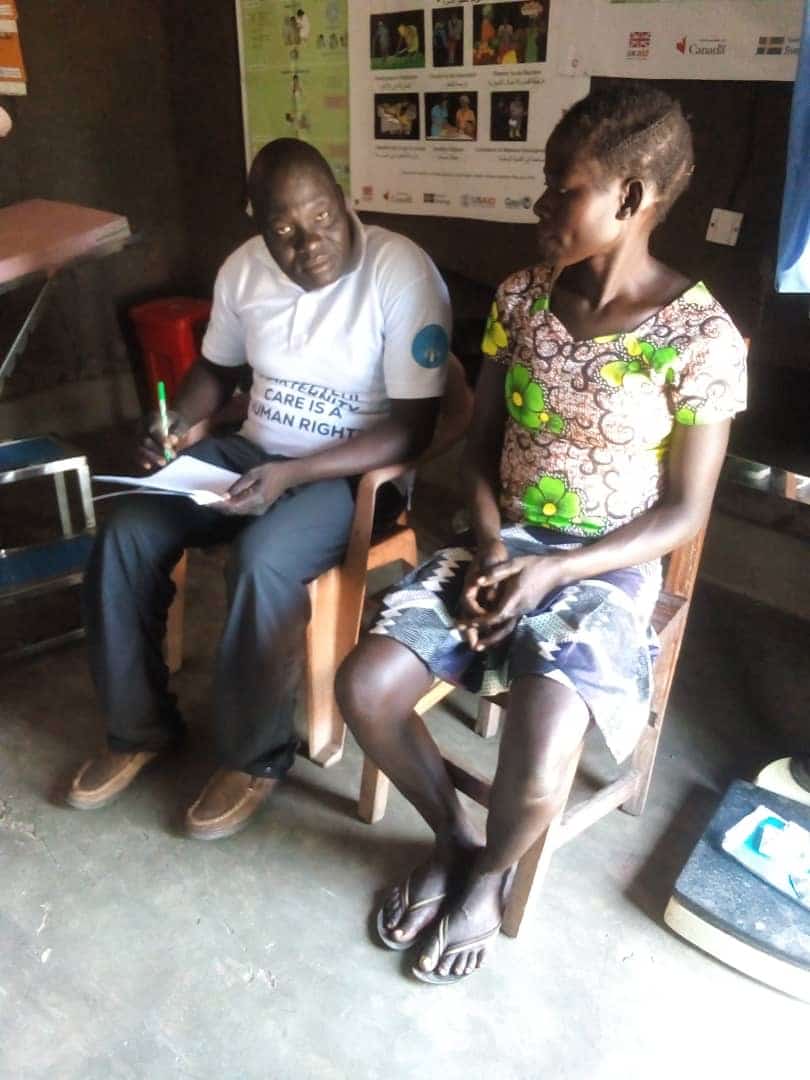
To support these gains, SMART-RMC delivered evidence-based trainings and implemented Quality Improvement (QI) plans in 40 healthcare facilities across both countries. These QI teams – many led by midwives – sparked real, grassroots change in how care is delivered.
“Their passion for the profession and for improving maternal health outcomes in their countries shone through in everything they contributed to this project and their communities,” explains St-Denis. “They are committed to carrying out this work beyond the project, catalyzing their RMC learnings and practices into continued quality improvement and advocacy within health systems,” she continues.

In the DRC:

Teams at HGR Ime Kimpese and CSR Kimbondo advocated to include midwife-led education sessions for pregnant women as part of antenatal care.
Facilities like CH/Mat La Samaritaine and HGR St Luc improved privacy by creating dedicated consultation spaces, “baby corners,” and securing folding privacy screens.
At CS/Mat Reverend Mbakani, midwives successfully advocated for blood pressure monitors in every department.
In South Sudan:
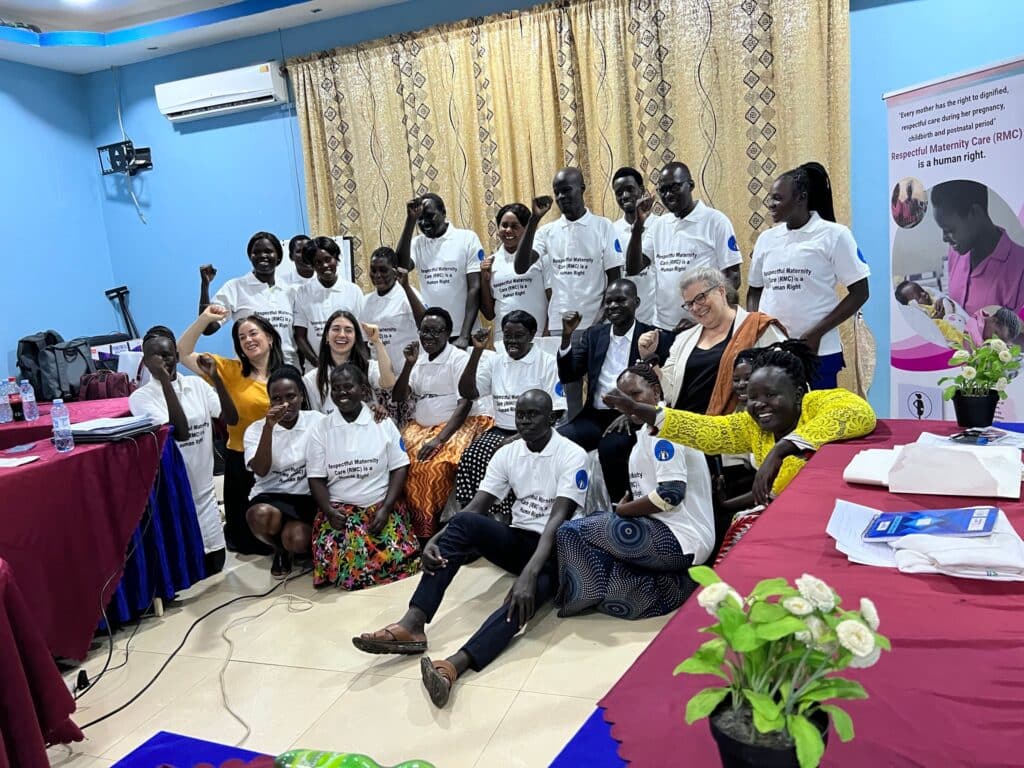
At Gira PHCC, the QI team built a pit latrine using their own time and resources to improve sanitation.
Mvolo County Hospital secured materials to build a fence to reduce equipment theft.
Bentiu State Hospital began weekly cleanings of the maternity ward, thanks to advocacy by midwives.
While these may seem like small changes, they reflect deeply rooted, provider-led transformations that address both infrastructure and dignity in care. With support from RMC mentors, many of these improvements are now part of long-term strategies to uphold and sustain quality care.
The project also met people where they were. In South Sudan, midwives launched an “Ask the Midwife” radio program, reaching over 16,400 listeners each month. The broadcasts built trust by engaging men, boys, and community leaders in open conversations about family planning and maternal health. In the DRC, mobile clinics partnered with the association’s theatre troupe to create welcoming and highly visible environments through which over 2,000 women, many from marginalized communities, could access reproductive health services and learn about their rights.
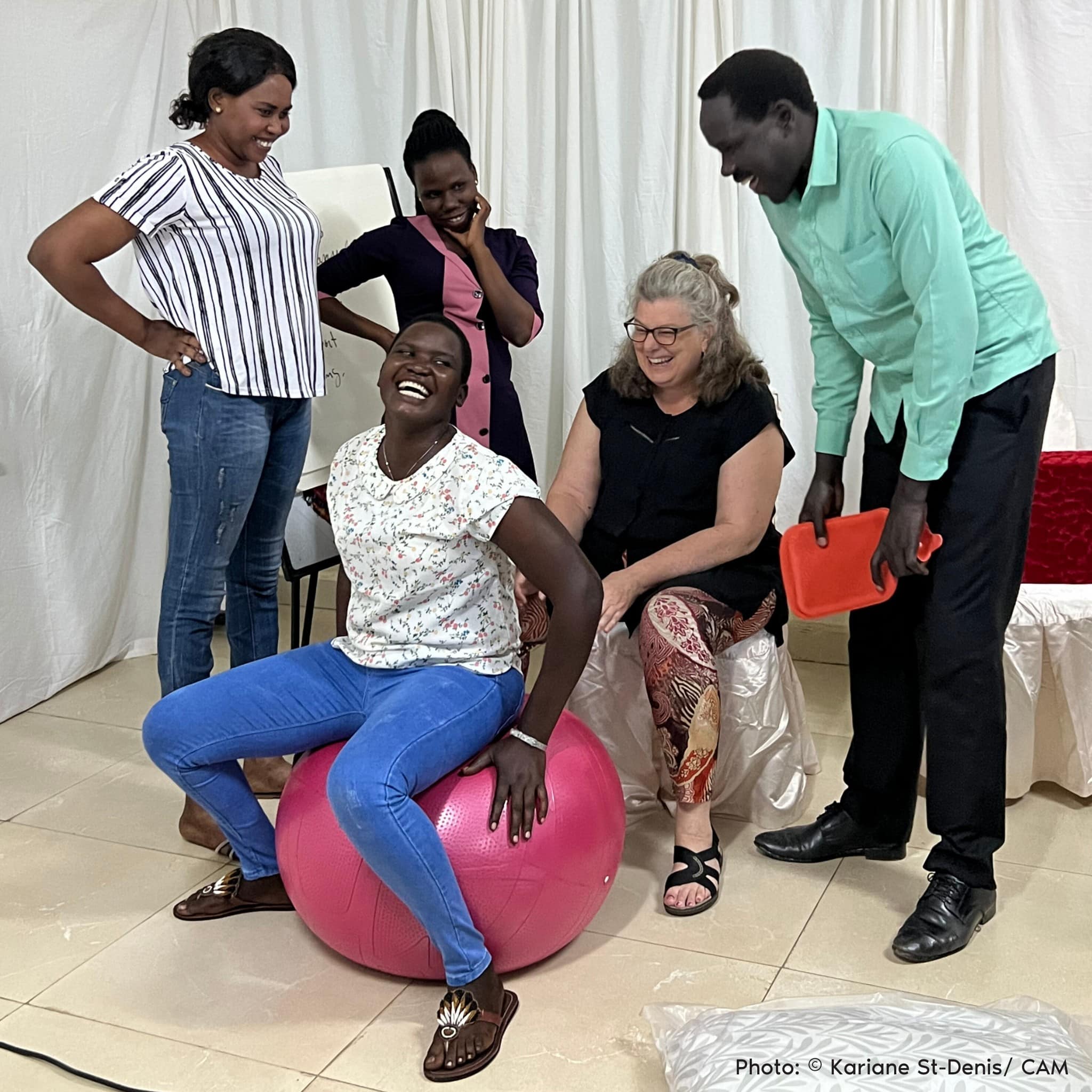
Meanwhile, policy change was also underway. In the DRC, project partner SCOSAF successfully led the drafting of national legislation to establish a Midwifery College, a critical step toward professional recognition and regulation.

“This time, I noticed a big difference from the moment I arrived. The midwife welcomed me with great kindness and stay ed by my side, encouraging me throughout my labour.”
Mme Joséphine, client at La Samaritaine FOSA, DRC
What’s most remarkable isn’t just what was accomplished, but how. Despite operating in contexts marked by political instability, limited infrastructure, and high maternal mortality, midwives remained committed, resourceful, and resilient. When discussing the collaboration of midwives in Global South and Canada, St-Denis lights up: “To add to this, our CAM midwife volunteers were incredible too. Their humility and enthusiasm for collaborating with fellow midwives knew no borders, geographical or otherwise… I myself am incredibly humbled by the opportunity to have worked so closely with all of these change-makers, witnessing firsthand how powerful and sustainable investment in rights-based, midwifery-led change can be,” she concludes.
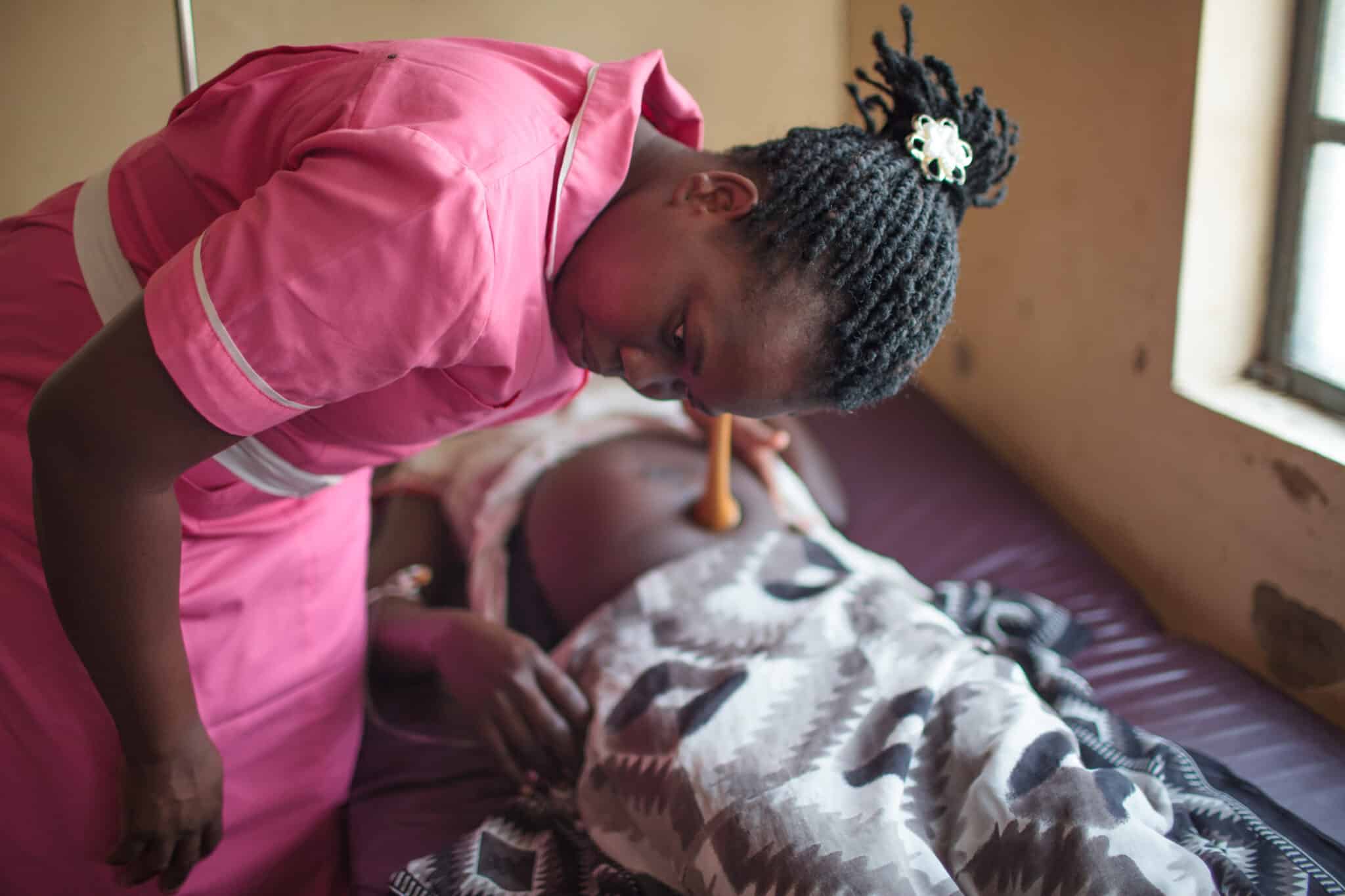
As Canada and other countries reimagine their role in global health, SMART-RMC offers a compelling blueprint for sustainable impact. It’s clear: investing in midwives strengthens not only maternal health, but community well-being and human rights. Rooted in collaboration, cultural humility, and lived experience, this project is more than a success story. It’s a SMART lesson in leadership, and one funders would be wise to remember.

